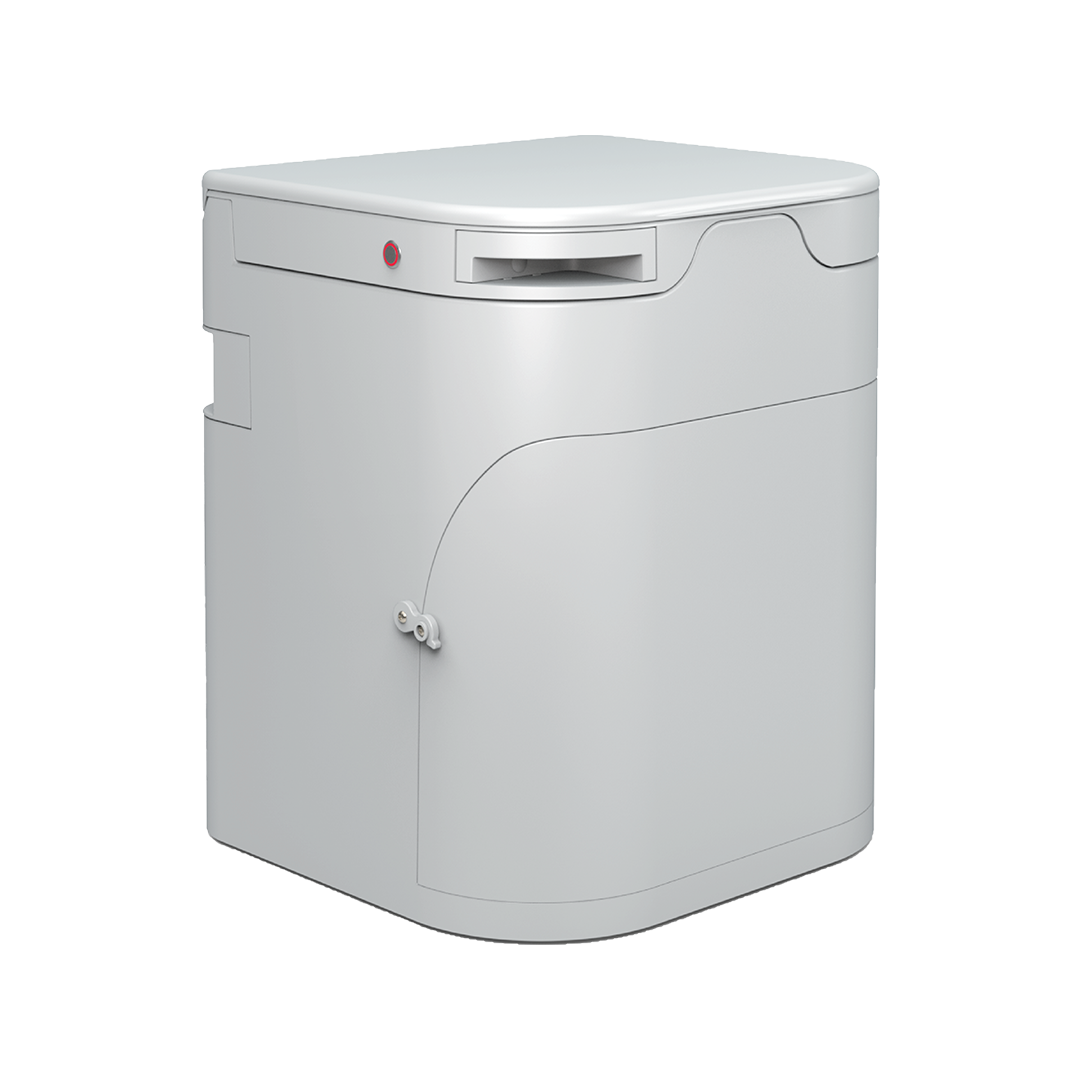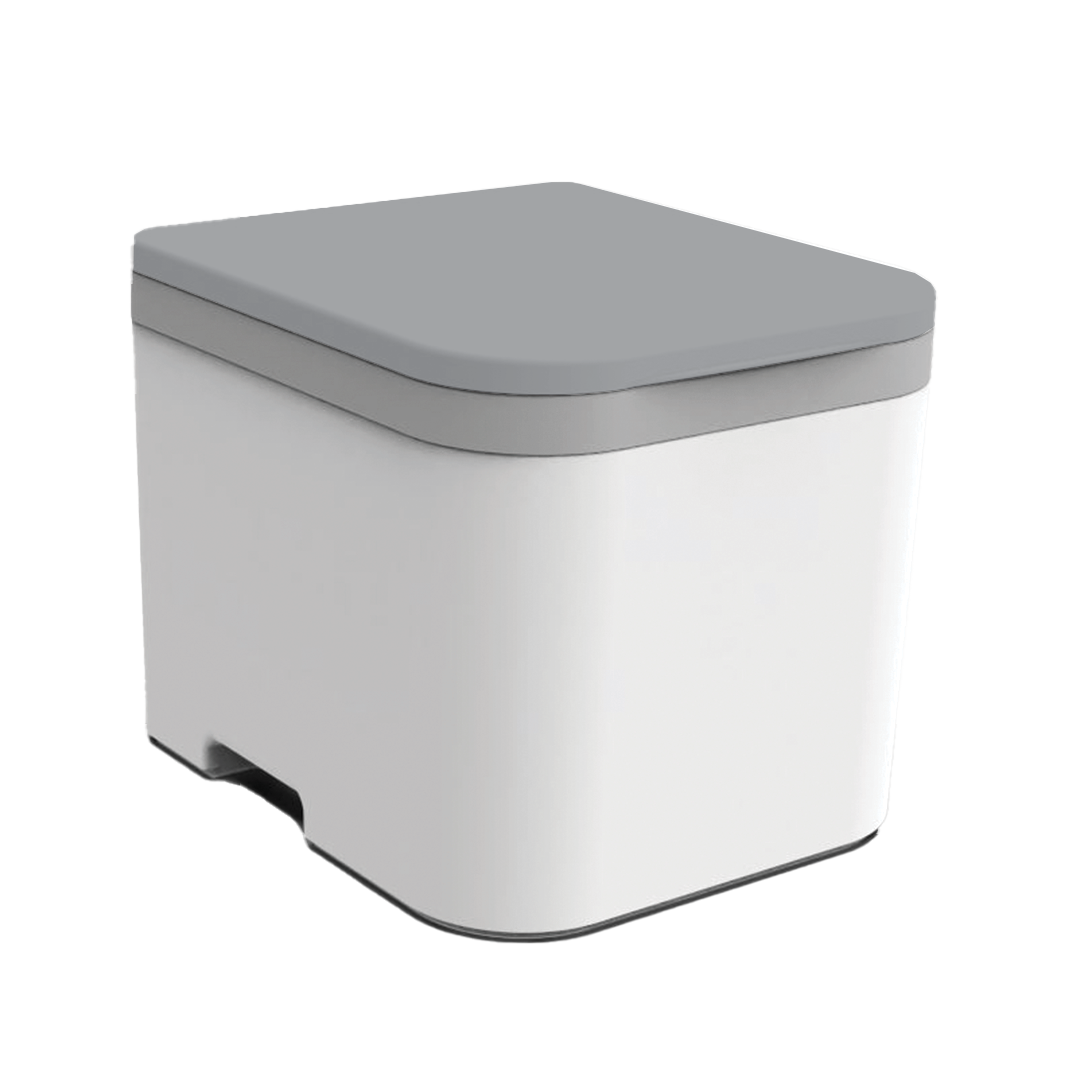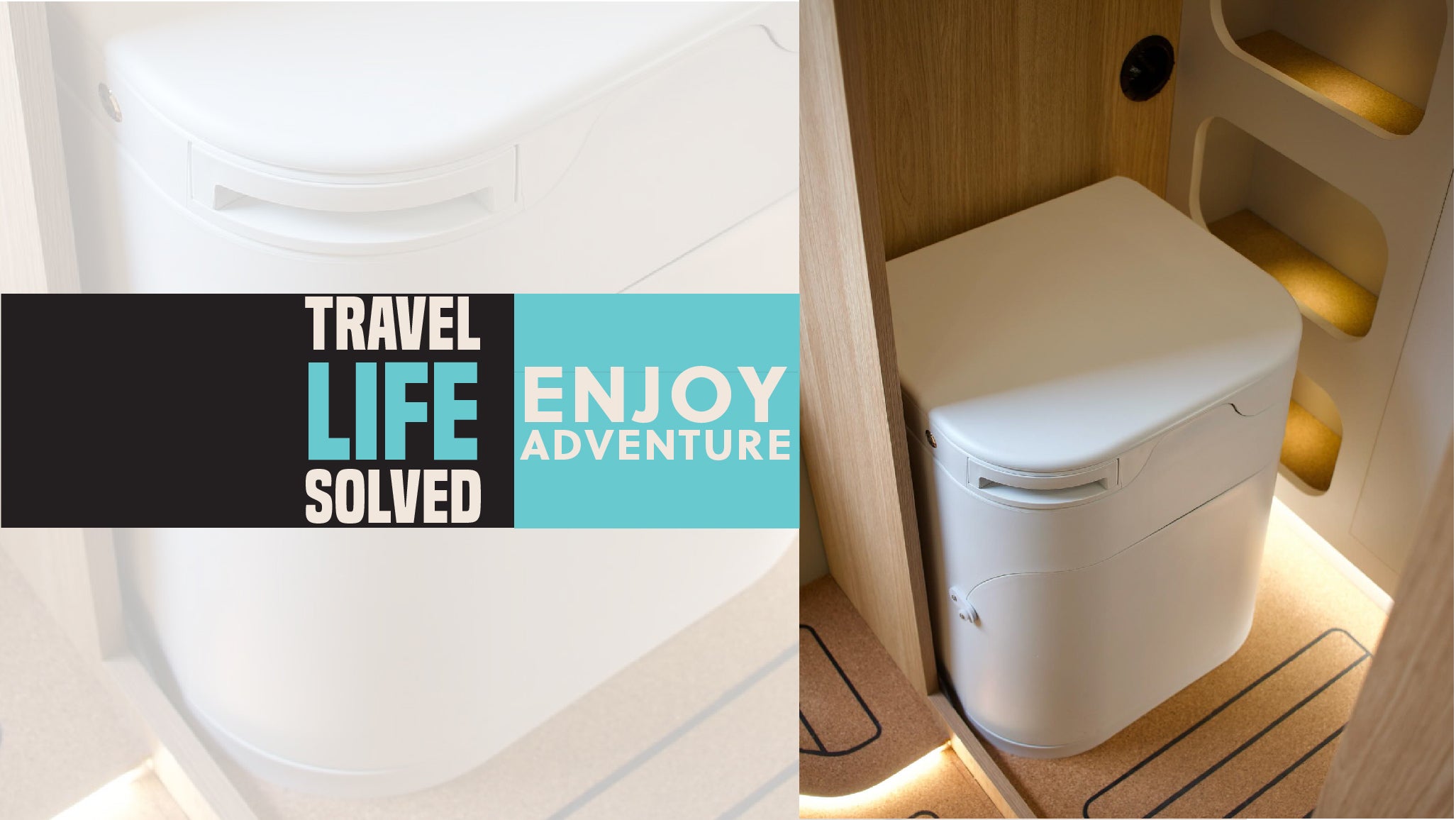Traveling and living in RVs, boats, and other mobile or off-grid settings offers a unique sense of freedom and adventure. However, one of the less glamorous aspects of this lifestyle is dealing with sanitation. Traditional RV toilets, cassette toilets, and marine heads each come with their own set of challenges. In this article, we'll explore the struggles associated with these toilet systems and why people continue to use them despite the inconveniences.
The Challenges of Using RV Toilets
1. Limited Water Supply:
- Struggle: RV toilets rely on a finite onboard water supply, which means users must constantly monitor and conserve water. Running out of water can render the toilet unusable until more is available. Using a toilet without water results in the infamous "poop pyramid" which no one wants to deal with.
- Why People Put Up with It: The convenience of having a familiar, flushable toilet outweighs the hassle for many RV users, and they often plan their trips around available water sources, typically cutting their trip short or breaking it up to dump and refill.
2. Holding Tank Management:
- Struggle: Waste is stored in a holding tank that needs to be emptied regularly at designated dump stations. This process can be unpleasant, involving handling hoses, waiting in lines and dealing with strong odors.
- Why People Put Up with It: The holding tank system is a well-established solution with infrastructure in place at many campgrounds and RV parks, making it a convenient, if not always pleasant, option.
3. Odor Control:
- Struggle: Even with regular maintenance, odors can build up in the holding tank, especially in hot weather. Chemical treatments are often necessary to keep smells at bay. However, most of these chemicals are extremely harmful and hazardous, with lasting negative effects on the environment—the very environment we are trying to enjoy.
- Why People Put Up with It: Chemical treatments and deodorants are readily available and generally effective, making this a manageable issue for most users.
The Challenges of Using Cassette Toilets
1. Small Capacity:
- Struggle: Cassette toilets have a smaller waste holding capacity compared to traditional RV toilets, requiring more frequent emptying. This can be particularly inconvenient during extended stays in remote areas.
- Why People Put Up with It: The compact size of cassette toilets makes them ideal for smaller RVs and camper vans, where space is at a premium. Their portability and ease of installation are significant advantages.
2. Emptying the Cassette:
- Struggle: The waste cassette must be manually removed and emptied at a designated disposal site. This task is often messy and unpleasant, involving exposure to waste and strong odors.
- Why People Put Up with It: The manual emptying process allows for more flexibility in disposal, as users can empty the cassette at various locations, not just at RV dump stations.
3. Odor Issues:
- Struggle: Like RV toilets, cassette toilets can develop odors, especially if not emptied frequently or if chemical treatments are not used.
- Why People Put Up with It: Regular use of chemicals and maintenance routines can effectively manage odors, making the issue tolerable for many users.
The Challenges of Using Marine Heads
1. Limited Space:
- Struggle: Marine heads are often installed in very confined spaces, making them difficult to use and clean. The cramped quarters can be uncomfortable, especially for larger individuals.
- Why People Put Up with It: Space is a premium on boats, and the compact design of marine heads is a necessary compromise to fit the available area.
2. Pump-Out Requirements:
- Struggle: Marine heads require pump-out services to empty the holding tank. Access to pump-out stations can be limited and costly, especially in remote or less-frequented waters.
- Why People Put Up with It: Despite the inconvenience, having an onboard toilet is a critical necessity for long voyages, and pump-out services are a standard part of marina facilities.
3. Maintenance and Repairs:
- Struggle: Marine heads are prone to clogs and mechanical issues due to their complex plumbing systems. Repairs can be challenging and costly, often requiring specialized parts and skills.
- Why People Put Up with It: The ability to manage waste onboard without relying on external facilities is essential for marine travelers, making the maintenance burden an acceptable trade-off.
Why People Put Up with These Struggles
Despite the challenges associated with RV toilets, cassette toilets, and marine heads, people continue to use them because:
- Convenience: Having a toilet on board is essential for comfort and convenience, especially in remote areas.
- Independence: These systems allow for greater independence, enabling longer trips without relying on public restrooms.
- Infrastructure: There is established infrastructure for waste disposal, with dump stations, chemical treatments, and pump-out services available at many campgrounds, marinas, and RV parks.
Conclusion
While the struggles of using traditional RV toilets, cassette toilets, and marine heads are undeniable, the benefits they provide in terms of convenience, independence, and established infrastructure make them a viable option for many travelers and off-grid enthusiasts. However, as the demand for more sustainable and user-friendly solutions grows, innovations like compost toilets are becoming increasingly attractive alternatives. Embracing these newer technologies can help mitigate many of the issues associated with traditional sanitation systems, offering a cleaner, greener way to manage waste while on the move. We deserve better. We can do better.




